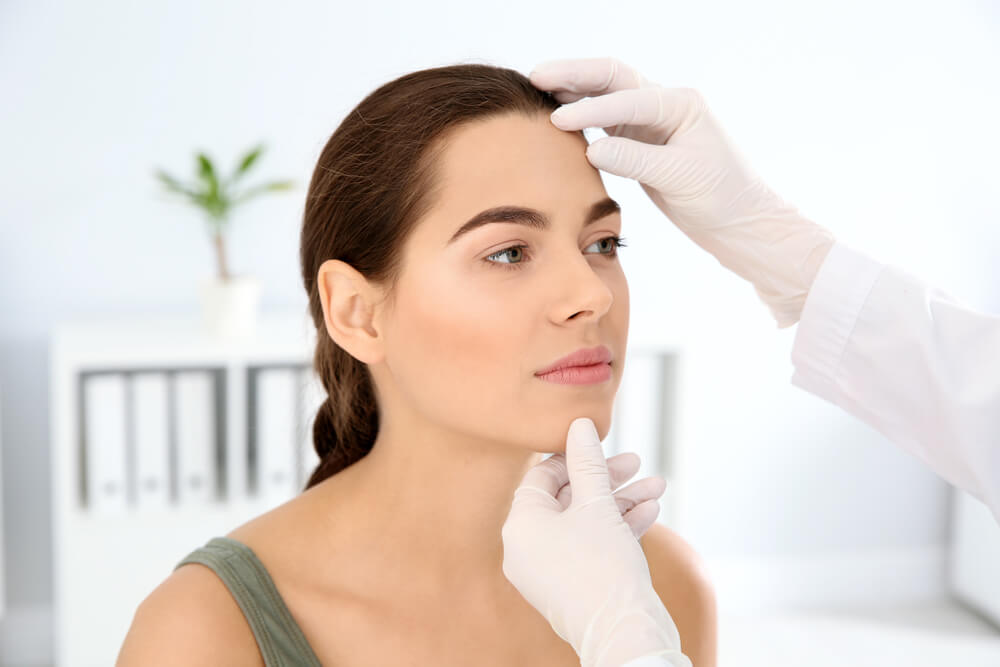Eczema
Eczema, also known as atopic dermatitis, is a skin disease that occurs in people of all ages – though children are most prone to developing it. Approximately 35 million people in the U.S. have eczema, the vast majority of who are children under age 5. The condition causes chronically dry patches of skin and itching at all ages. The discomfort from eczema leads to constant scratching, which can in turn cause secondary complications, such as infection. It is important to seek dermatological treatment for eczema if you or your child is suffering from any of the signs and symptoms of this disease.
Did you know?
Eczema symptoms vary according to severity and age of onset. Among children, who often develop the disease before their first birthdays, the symptoms may include a rash on the scalp and face. Older children can develop knots under the skin, as well as some thickening and discoloration. Additionally, the rash may appear in various areas such as the wrists, elbows, and knees. For adults, eczema covers much of the body and causes a persistent, non-stop itch.
Frequently Asked Questions
Should I be treated for eczema?
See your dermatologist if you think you or your child may be suffering from eczema. Your doctor will examine you or your child’s skin and possibly conduct a ‘patch test’ to determine whether the rash is caused by a common allergen. In some cases, people with eczema find that their symptoms are worsened by exposure to allergens.
What should I expect during eczema treatment?
Eczema treatment is conducted in phases, first to control uncomfortable symptoms and then to clear infection and scaly lesions. Your treatment may include a combination of in-office treatments, topical medications, skin care products and lifestyle changes. Over time, eczema symptoms may begin to fade, and the development of new lesions usually slows.
Is there anything I can do to facilitate the treatment process and improve my outcome?
Yes. Good skin care goes a long way in facilitating eczema treatment. Talk to your dermatologist about ways you can lower your stress levels, which may contribute to flare-ups. Keep in mind that eczema in young children often improves on its own over time. And for those who have eczema into adulthood, symptoms generally become milder.
Rosacea
Rosacea is a benign skin disease identified by reddened skin – especially on the face, neck and chest. There are four types of rosacea, each of which causes different types of symptoms. In addition to redness, the various types of rosacea may also cause flushing, visible blood vessels, swelling, acne-like breakouts, bumpy skin, thickened skin, or red and swollen eyes. This redness may come and go, or it may be permanent among people who have suffered from the condition for a long time. Some people also experience stinging and burning sensations, as well as overly dry or oily skin. The pores may also appear enlarged.
Did you know…
that rosacea is a very common skin disease in the U.S.? The National Rosacea Society estimates that 16 million Americans have the disease, though many go undiagnosed. Rosacea most commonly begins between the ages of 30 and 50 among light-skinned individuals of Celtic or Scandinavian descent. However, anyone can get the disease – including dark skinned people and young children. Not even celebrities are immune to the condition. President Bill Clinton, Mariah Carey, Princess Diana, and Renee Zellweger are just some of the famous personalities who have been diagnosed with rosacea.
Frequently Asked Questions
How do I know if I have rosacea?
Many people with rosacea are unaware that they have the condition. However, it is highly treatable when diagnosed. If you are experiencing any of the symptoms of rosacea – skin redness, flushing, swollen eyelids, breakouts, and thickened skin – see your dermatologist for a diagnosis. Left untreated, rosacea may worsen over time.
What should I expect from rosacea treatment?
There is no cure for rosacea, but there are treatments available to help alleviate symptoms. Your dermatologist may treat your rosacea with a combination of topical antibiotics, medications, and laser or light treatments. If you have thickened skin, a dermabrasion procedure can help restore it to normal.
What can I do to help facilitate my treatment?
Your rosacea may clear on its own or stay for many years. Though you may not have control over it, there are some steps you can take to prevent flare-ups. For example, wearing sunscreen every day can prevent rosacea from worsening. If you are diagnosed with rosacea of the eyes, be sure to wash your eyelids multiple times daily.

